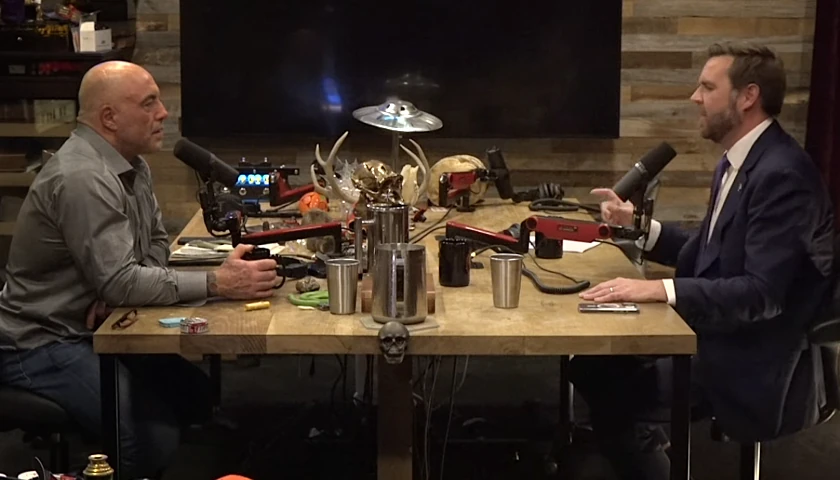Republican leadership is blasting Governor Tony Evers for threatening to kill a bill that would boost state shared revenue and bail out financially troubled Milwaukee.
The liberal governor, however, isn’t the only critic of the legislation that pours hundreds of millions of dollars of new taxpayer revenue into Badger State towns, villages, cities, and counties.
As The Wisconsin Daily Star reported, the proposal includes $50 million in new money for counties and $176 million targeted for towns, villages and cities. But the money may only be marked for core services, including law enforcement, fire protection, emergency medical services, public works, and transportation. Every community in Wisconsin would see a minimum 10 percent increase in shared revenue.
Republicans also are proposing a $300 million, three-year pilot program called the Innovation Fund to encourage consolidation of services in local governments. The goal, lawmakers say, is to reduce local spending and create more efficient services.
Under the shared revenue plan, Milwaukee would be allowed to put in place a temporary 2 percent sales tax. Milwaukee County could boost its 0.5 percent sales tax by 0.375 percent. It would be up to local voters to approve the tax hikes through a referendum.
Evers doesn’t like it. He wants more money and doesn’t want any restrictions on how local governments could use the funds.
“I can’t support the Republican plan as is and, frankly, I’ll veto it in its entirety,” the Democrat said this week in a stumbling video on Twitter.
For a decade, our communities have been asked to do more with less. The state must step up to meet our local needs.
It’s why I cannot support the current Republican plan released Tuesday: It’s not enough. We have to do more. My full statement ⬇️ pic.twitter.com/4h3msW17rT
— Governor Tony Evers (@GovEvers) May 4, 2023
“Let’s put it, let’s increase the money that’s going to the locals. And, frankly, also, let’s kind of remove all of those restrictions that we’re, that the legislation was putting on those local folks,” Evers added.
He uses the same language President Joe Biden has in his call for a raising the public debt ceiling without any federal spending cuts. Evers says he wants a “clean bill that talks about the money that we’re going to, we’re going to give to the municipalities.” In other words, fork over a lot more state taxpayer money and let the local governments spend it anyway they see fit without any measure of accountability.
Republican leaders took aim at Evers’ veto threat.
“After several weeks of meetings and negotiations with all parties involved – Democrats, Republicans, towns, villages, cities and counties – we reached a shared revenue proposal we believe the public will support,” said Assembly Speaker Robin Vos (R-Rochester) and Senate Majority Leader Devin LeMahieu (R-Oostburg) said in a press release.
“It’s very disappointing to come so close to the finish line only to have the Governor publicly issue veto threats because he wants to spend more money,” the lawmakers said.
Maybe more troubling is the fact that Milwaukee faces bankruptcy because of its ongoing fiscal problems, particularly its bloated pension system. Unfunded liabilities are soaring, with estimates showing the city’s annual contribution will rise from around $71 million to $150 million. It is expected to remain elevated for years to come, the Milwaukee Journal Sentinel reported. Milwaukee County is still dealing with the lingering effects of a pension scandal 20 years ago.
“The most pressing issue here is the bankruptcy Milwaukee will face if this bill does not pass. This is a disappointing move by Governor Evers. He should reconsider and work with us before the bill is brought to the floor of the Assembly,” Vos and LeMahieu said.
Milwaukee Mayor Cavalier Johnson, who this week said the city is “on a path of catastrophic budget cuts,” doesn’t like the fact that the shared revenue plan requires city and county voters to approve local sales taxes.
“I think it’s important we trust the people that we elected to office to dig into these issues,” Johnson told lawmakers.
But Milwaukee and Milwaukee County elected officials, critics say, are the ones who got the local governments in the fiscal mess they’re in.
At least one Republican lawmaker isn’t happy with the shared revenue proposal, either.
State Senator Steve Nass (R-Whitewater) called the plan a “Frankenstein Bill” with “many unrelated parts.” He said there are serious issues with the process used to develop the bill behind closed doors and the language of the bill itself.
“I support increasing funds to the Shared Revenue Program and doing so with a new distributional formula that fairly sends the dollars out to all regions of Wisconsin,” Nass said. “The reform of Shared Revenue can be met without linkage to a massive bailout of the fiscal incompetence by elected officials in the City and County of Milwaukee for many years.”
The senator said he supports “fixing the Milwaukee problem with serious and binding long-term controls on how Milwaukee spends every dollar they receive from the state or local taxpayers.” Any reform package “must prevent the need for another bailout in the near future.”
“Republicans in this state have long opposed the creation of new local option sales taxes simply to feed the desire of more spending,” Nass said. “By authorizing new local option sales taxes for Milwaukee, we will have blindly kicked open the door to greater use of local option sales taxes for other communities in short order.”
– – –
M.D. Kittle is the National Political Editor for The Star News Network.
Photo “Tony Evers” by Tony Evers. Background Photo “Wisconsin Statehouse” by Michael Barera. CC BY-SA 4.0.








